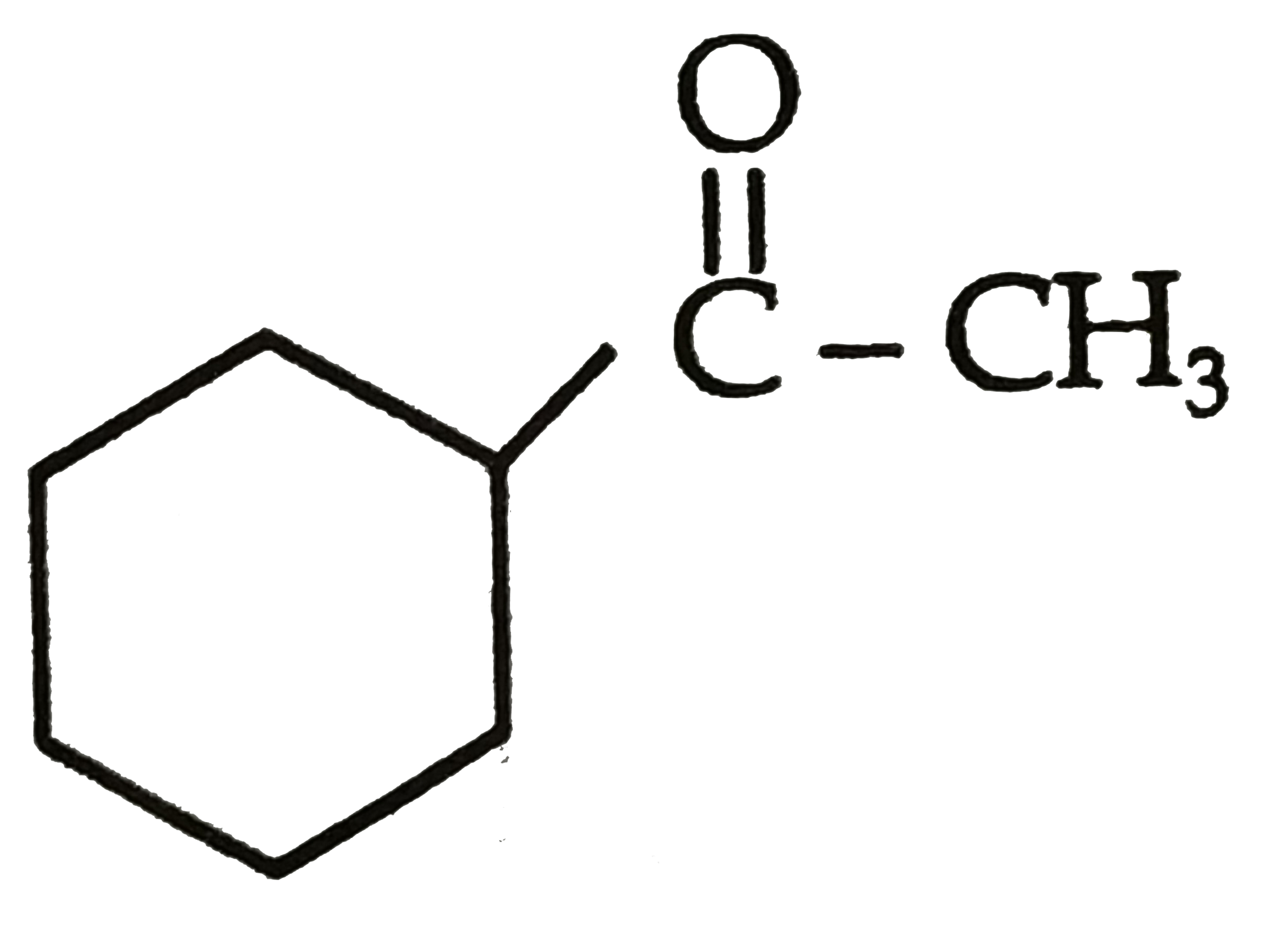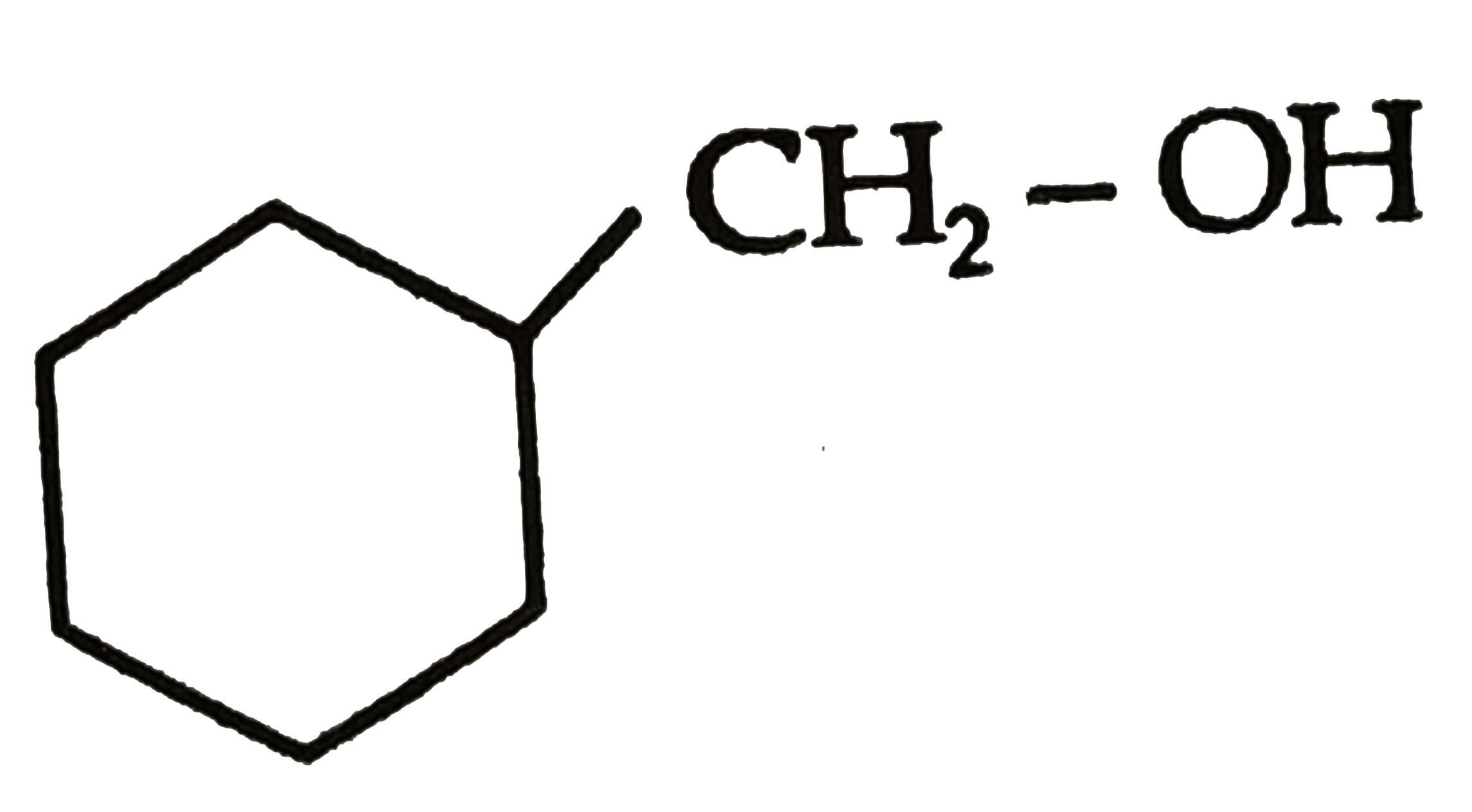Mixture of carboxylic acids oblained by the oxidation of hexan-3-one does not contain
Methanoic acid
Ethanoic acid
Propanoic acid
Butanoic acid
The correct Answer is:A
To solve the question regarding the mixture of carboxylic acids obtained by the oxidation of hexan-3-one, we will follow these steps:
Step 1: Understand the Structure of Hexan-3-one
Hexan-3-one is a ketone with the following structure:
- It has a six-carbon chain (hexane) with a carbonyl group (C=O) located on the third carbon.
- The structural formula can be represented as:
CH3−CO−CH2−CH2−CH2−CH3
Step 2: Identify the Oxidation Process
Ketones are generally resistant to oxidation. However, under certain conditions (high temperature and pressure), they can undergo oxidation. The oxidation of hexan-3-one will lead to the formation of carboxylic acids.
Step 3: Consider Enolization
During the oxidation process, hexan-3-one can undergo enolization, forming enols. The possible enols from hexan-3-one are:
1. The more stable enol:
CH3−C(OH)=CH−CH2−CH2−CH3
2. A less stable enol:
CH2=C(OH)−CH2−CH2−CH3
Step 4: Identify the Products of Oxidation
When hexan-3-one is oxidized, it can break down to form carboxylic acids. The oxidation will yield:
- Propanoic acid (C3H6O2) from the three-carbon fragment.
- Butanoic acid (C4H8O2) from the four-carbon fragment.
Step 5: Determine What is Not Present
Since the oxidation of hexan-3-one leads to the formation of propanoic acid and butanoic acid, we need to determine which carboxylic acid is not present in the mixture.
Given that the oxidation of hexan-3-one does not lead to the formation of any carboxylic acid with more than four carbons, we can conclude that:
- Carboxylic acids with more than four carbons (like pentanoic acid or hexanoic acid) are not present in the mixture.
Final Answer
The mixture of carboxylic acids obtained by the oxidation of hexan-3-one does not contain pentanoic acid or any carboxylic acid with more than four carbons.
---
Hexan-3-one is a ketone with the following structure:
- It has a six-carbon chain (hexane) with a carbonyl group (C=O) located on the third carbon.
- The structural formula can be represented as:
CH3−CO−CH2−CH2−CH2−CH3
Ketones are generally resistant to oxidation. However, under certain conditions (high temperature and pressure), they can undergo oxidation. The oxidation of hexan-3-one will lead to the formation of carboxylic acids.
During the oxidation process, hexan-3-one can undergo enolization, forming enols. The possible enols from hexan-3-one are:
1. The more stable enol:
CH3−C(OH)=CH−CH2−CH2−CH3
2. A less stable enol:
CH2=C(OH)−CH2−CH2−CH3
When hexan-3-one is oxidized, it can break down to form carboxylic acids. The oxidation will yield:
- Propanoic acid (C3H6O2) from the three-carbon fragment.
- Butanoic acid (C4H8O2) from the four-carbon fragment.
Since the oxidation of hexan-3-one leads to the formation of propanoic acid and butanoic acid, we need to determine which carboxylic acid is not present in the mixture.
- Carboxylic acids with more than four carbons (like pentanoic acid or hexanoic acid) are not present in the mixture.
The mixture of carboxylic acids obtained by the oxidation of hexan-3-one does not contain pentanoic acid or any carboxylic acid with more than four carbons.
Topper's Solved these Questions
Similar Questions
Knowledge Check
Cyclohexane carboxylic acid is obtained by oxidation of
A B
B C
C Dboth b and c
Dboth b and cHexane dioic acid in obtained by oxidation of
AbenzeneBcyclohexaneCcyclohexeneDcyclohexane carbaldehydeMixture of acetic acid and propionic acid is obtained by oxidation of
A B
B C
C D
D
Mixture of acetic acid and propionic acid is obtained from oxidation of
View Solutionone of the following amino acids does not contain sulfur .
View SolutionOxidation of allyl alcohol, (CH2=CH−CH2OH) gives a mixture of oxalic acid and formic acid. If this oxidation is done in presence of bromine. One would expect only
View SolutionRead the passage given below and answer the following questions:
Aldehydes, ketones and carboxylic acids are few of the major classes of organic compounds containing carbonyl group. Aldehydes are prepared by dehydrogenation or controlled oxidation of primary alcohols and controlled or selective reduction of acyl halides. Ketones are prepared by oxidation of secondary alcohols and hydration of alkynes. Carboxylic acids are prepared by the oxidation of primary alcohols, aldehydes and alkenes by hydrolysis of nitriles and by treatment of Grignard reagents with carbon dioxide.
The reagent which does not react with both, acetone and benzaldehyde.
View SolutionA mixture of carboxylic acid (A) and alcohol (B) on heating give and ester (C ) having molecular mass 74. What is (C ) ?
View Solution
